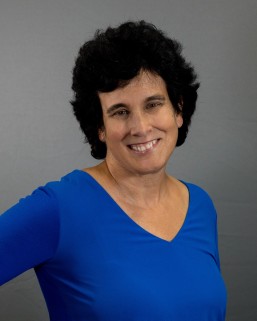Open Society Foundations Announces Justice Fellows, Including Juvenile Law Center’s Christina Sorenson
Sorenson’s project will address need for accessible and responsive grievance policies for youth in institutional placements
Philadelphia, PA (September 27, 2019): Open Societies Foundations today announced the hire of its new 2019 Justice Fellows—including Juvenile Law Center attorney Christina Sorenson.
“We are thrilled to serve as a host site for Christina,” said Sue Mangold, CEO. “We appreciate Open Society’s dedication to building the field of national leaders fighting for justice systems that truly serve young people. Christina’s project will put the voices of youth in foster care and delinquency placements at the forefront to design grievance policies that pull together resources and best practices to ensure that youth have control over their lives, make the decisions about their future and have clear access to redress should they experience abuse or mistreatment.”
For the past two years, Sorenson has been a Sol and Helen Zubrow Fellow in Children’s Law at Juvenile Law Center, working on a range of issues affecting youth in the child welfare and justice systems. She is a graduate of the University of Richmond Law School and has stood up for youth for years through her work with both advocacy organizations and legal clinics. She is also the recipient of the Children’s Law Center’s Orell-Brown Award for Clinical Excellence. She clerked after law school in the state of Delaware while maintaining a passion for youth ensnared in the child welfare and justice systems.
Involvement in the juvenile justice and/or child welfare system has a disempowering impact on all youth. Youth involved in these systems have little to no meaningful participation or autonomy in decisions that affect them. Institutional placements, however, are particularly harmful and disempowering. Youth often have no real avenue for redress should a problem arise.
“My awareness of the life-long consequences of institutional placements is grounded in experience,” said Sorenson. “When I was 5 years old, my sister and I were placed in foster care. In 9 years, I lived in 15 different homes enduring physical, sexual, and mental abuse. After being separated, my sister was in 13 different institutions, before being placed at Iowa Juvenile Home, which was later closed after investigative reporting by the Des Moines Register uncovered systemic abuse including excessive use of isolation. Endemic abuse within institutions compounds the trauma imposed by isolation and separation from families, friends and communities; they leave youth feeling unseen, unheard and unvalued.”
Christina’s project, a potential model for partners nationally, will specifically zero in on Pennsylvania – a state ripe for reform in this area due to recent broad-reaching news stories about rampant abuse and neglect at institutions like Glen Mills, Wordsworth and other residential facilities. Juvenile Law Center has a class action lawsuit against state officials and Glen Mills following groundbreaking investigative coverage of the facility by the Philadelphia Inquirer which led to an emergency removal order by the state. The state legislature is paying new attention to policies concerning youth in placement.
Sorenson will be employing two youth advisory board members from Juvenile Law Center’s Youth Advocacy Program to develop ideas, facilitate conversations with a diversity of youth in various counties, and ensure that the project is authentically youth-centered and led.
“Racial and ethnic disparities remain deeply embedded in the administration and discourse of institutional placements,” said Sorenson. “The road to equity within the juvenile justice and child welfare systems begins with youth and family legal empowerment and social accountability. Youth legal empowerment is a step forward towards strengthening the youth’s own agency in finding and demanding justice in a system of injustice.”
Ms. Mangold and Ms. Sorenson are available for comment and interview.
CONTACT:
KATY OTTO (JUVENILE LAW CENTER)
OFFICE: 215-625-0551 x 128 EMAIL: [email protected]
